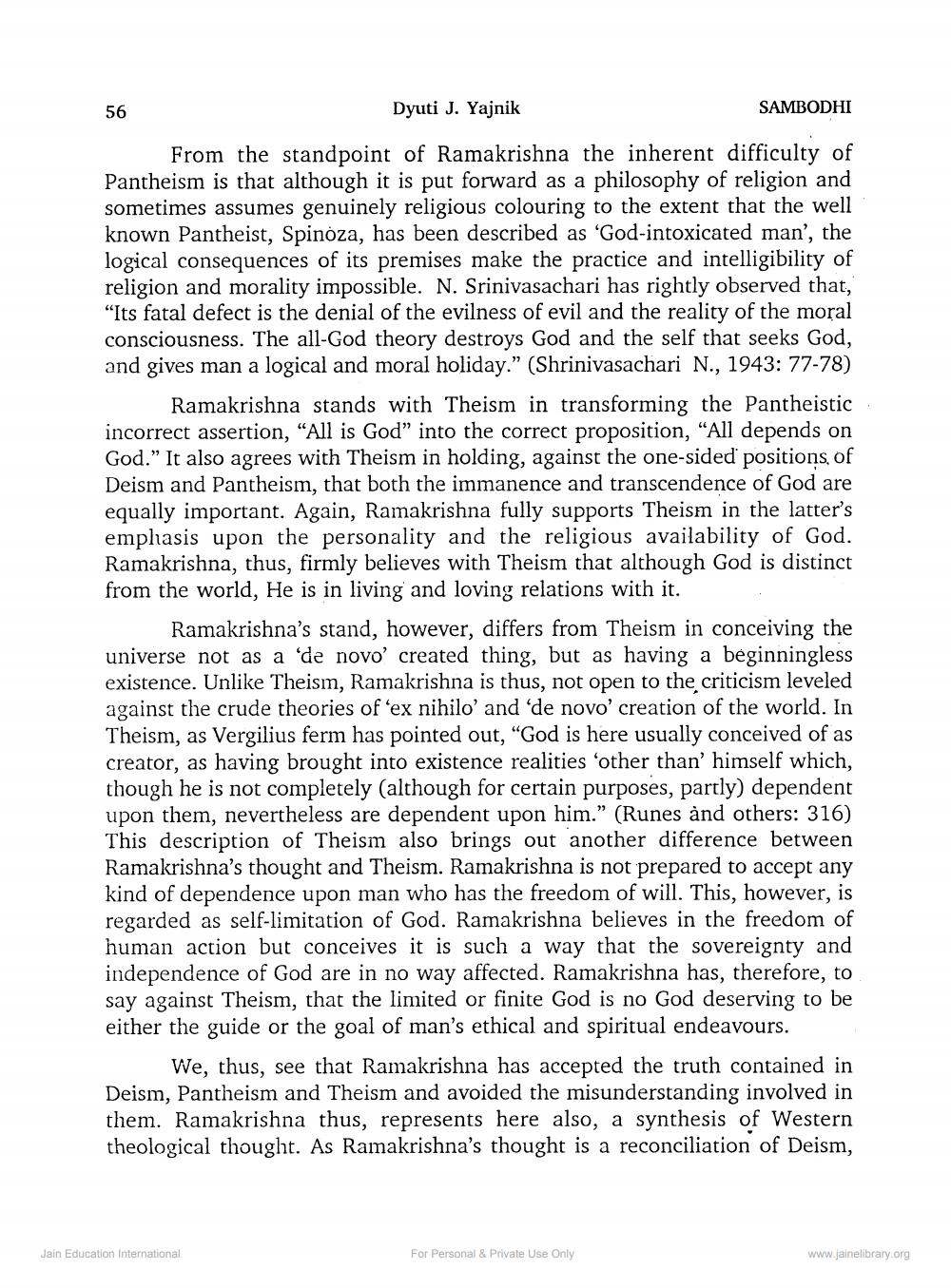________________
56
Dyuti J. Yajnik
SAMBODHI
DA1
From the standpoint of Ramakrishna the inherent difficulty of Pantheism is that although it is put forward as a philosophy of religion and sometimes assumes genuinely religious colouring to the extent that the well known Pantheist, Spinoza, has been described as 'God-intoxicated man', the logical consequences of its premises make the practice and intelligibility of religion and morality impossible. N. Srinivasachari has rightly observed that, "Its fatal defect is the denial of the evilness of evil and the reality of the moral consciousness. The all-God theory destroys God and the self that seeks God, and gives man a logical and moral holiday." (Shrinivasachari N., 1943: 77-78)
Ramakrishna stands with Theism in transforming the Pantheistic incorrect assertion, “All is God" into the correct proposition, “All depends on God.” It also agrees with Theism in holding, against the one-sided positions, of Deism and Pantheism, that both the immanence and transcendence of God are equally important. Again, Ramakrishna fully supports Theism in the latter's emphasis upon the personality and the religious availability of God. Ramakrishna, thus, firmly believes with Theism that although God is distinct from the world, He is in living and loving relations with it.
Ramakrishna's stand, however, differs from Theism in conceiving the universe not as a de novo' created thing, but as having a beginningless existence. Unlike Theism, Ramakrishna is thus, not open to the criticism leveled against the crude theories of 'ex nihilo' and de novo' creation of the world. In Theism, as Vergilius ferm has pointed out, "God is here usually conceived of as creator, as having brought into existence realities 'other than' himself which, though he is not completely (although for certain purposes, partly) dependent upon them, nevertheless are dependent upon him.” (Runes and others: 316) This description of Theism also brings out another difference between Ramakrishna's thought and Theism. Ramakrishna is not prepared to accept any kind of dependence upon man who has the freedom of will. This, however, is regarded as self-limitation of God. Ramakrishna believes in the freedom of human action but conceives it is such a way that the sovereignty and independence of God are in no way affected. Ramakrishna has, therefore, to say against Theism, that the limited or finite God is no God deserving to be either the guide or the goal of man's ethical and spiritual endeavours.
We, thus, see that Ramakrishna has accepted the truth contained in Deism, Pantheism and Theism and avoided the misunderstanding involved in them. Ramakrishna thus, represents here also, a synthesis of Western theological thought. As Ramakrishna's thought is a reconciliation of Deism,
Jain Education International
For Personal & Private Use Only
www.jainelibrary.org




